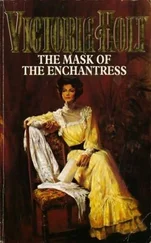‘Then,’ replied William ungraciously, ‘I suppose we should go down to greet him.’
* * *
The Duchess’s brother, Leopold of Saxe-Coburg, called at the apartments at Kensington Palace to see his sister. He came regularly every Wednesday afternoon, very dignified, very benign, expecting affection and homage, for the Duchess lived on his bounty and he was one of the few people in England whom she was sure she could trust.
On Wednesday afternoons Victoria was on her best behaviour because that was how dearest Uncle Leopold would wish her to be. She believed that she loved Uncle Leopold more than anyone else in the world. Dearest Feodora she loved tenderly; Lehzen she respected and loved; secretly in her heart she was not altogether sure of her feelings for Mamma except that one must love one’s Mamma because it would be extremely wicked not to do so, but if loving meant being excited and happy to be in the presence of the loved one, that was not always the case with Mamma. But with Uncle Leopold she had no doubt whatsoever. Her other loves were female and Victoria believed that while she could love her sister and her governess deeply she could not feel quite so protected in their company as she did in that of a man; and therefore there was something beyond love in the emotions Uncle Leopold aroused and this set him apart from all others.
‘He is the most beautiful man in the world,’ she told the dolls. ‘He has almost commanded me to love him best. Oh, he has not said so, but there is an understanding between us which does not need words.’
So Wednesday afternoon was the great day of the week.
She would watch from her window for his carriage – usually with Lehzen beside her – and he would look up, knowing she was there. Once she had not been and although he was not reproachful he was very sad.
‘Lehzen,’ she would say, ‘may we not go down to greet him?’
And Lehzen would say, maddeningly: ‘I think we should wait until we are sent for.’
The summons would come quickly; and she would go to Mamma’s drawing-room and she would throw her arms about him and say: ‘Dearest, most beautiful Uncle Leopold.’ And Mamma would say: ‘My child, your uncle will think you have never been taught how to enter a drawing-room.’ ‘Oh, but Mamma, this is dearest Uncle Leopold and I am too happy to have good manners.’
And if Mamma was not pleased, Uncle Leopold was. He would have his dearest Victoria just as she was. He loved her tenderly and he was delighted when she showed him that she loved her uncle with a devotion almost as great as that he felt for her. ‘Oh, more so, dearest Uncle.’ ‘No, my love, that could not be.’ And they would play the delicious game of ‘I love you more than you love me,’ each trying to prove that the other was mistaken.
Then Uncle Leopold would wish her to sit on his knee while he twirled her hair in his fingers and he told Mamma how he suffered with his rheumatic pains and his chest cold for poor darling Uncle Leopold, in spite of his beauty, was often very sick.
Mamma listened and mentioned a few symptoms of her own, and then Uncle Leopold would want to hear about Victoria’s lessons because he was always so interested in what she did. But today was different as everything was with the wedding so close. Victoria was not summoned immediately to the drawing-room because Uncle Leopold wished to talk to Mamma alone.
He now sat in one of the blue-and-white-striped chairs regarding his boots with the high soles to make him look taller. His wig, which he wore not so much for the sake of appearances as to keep his head warm, and prevent his catching cold, gave him an added air of elegance.
‘Soon,’ he was saying, ‘Feodora will be settled. It’s a fair enough match. And Charles will have to be prevented from doing anything foolish.’
‘Charles will never be such a fool,’ said the Duchess.
‘My dear sister, your son has sworn to marry this woman. He’s a ruler in his own right. I doubt he can be prevented … only persuaded.’
‘He shall be persuaded,’ declared the Duchess.
Leopold regarded her with faint irritation. She was a most domineering woman. She needed a man to guide her; all women did. His own wife Charlotte had been a hoyden but she had improved considerably under his guidance. Ah, if only Charlotte had lived, how different everything would have been. Charlotte would have been on the point of becoming Queen – for King George was surely on the point of death – and he would have been her consort, the power behind the throne, the real ruler of England. But his dear hoyden had died in childbed and this most unsatisfactory situation had arisen. The King’s brothers had hastily married and Leopold’s own sister had fallen to the Duke of Kent (he, Leopold, had helped to arrange that marriage) and now they had a child, dear little Victoria who, once George and Clarence were out of the way, would be Queen of England.
Some compensation, but how much better it would have been to have guided his Queen-wife than his Queen-niece.
And his sister, the Duchess Victoria, could be a nuisance. She talked too much; she wished always to be in the centre of the stage and if she was willing to accept Leopold as one of the little Queen’s counsellors, she was determined that her mother should be another.
Leopold shrugged aside the affair of his nephew Charles and Marie Klebelsberg. The important issue was, as always, Victoria.
‘The King has taken a turn for the worse,’ said Leopold giving a little cough and laying his hand delicately over his chest.
‘He will die very soon, I’m sure,’ said the Duchess with blithe optimism.
‘The life he has led!’ Leopold raised his eyes to the ceiling. He had never liked his father-in-law and the feeling was mutual. A sanctimonious fellow who didn’t drink could hardly be to the King’s taste; besides, he had wanted his daughter to marry the Prince of Orange, not link the family with the little house of Saxe-Coburg.
The Duchess shuddered. ‘I can’t understand how he keeps living. It seems as though he does it to spite us.’
Leopold said: ‘You should speak with greater discretion, sister.’
She shook her head, elaborately dressed as usual. The bows and ribbons fussed all over her gown and she glittered as she moved. She was overdressed, thought Leopold painfully. They would say it was bad taste.
‘Everyone knows it,’ she said. ‘Everyone is saying it. And then it will be that fool William’s turn. He can’t last long.’
Leopold put his fingers to his lips. He guessed that Sir John Conroy was not far away. That gentleman would make it his business always to be at hand when Leopold was with his sister, although he doubted not that the Duchess Victoria kept him informed of all that went on. Still, nothing was ever so accurate as that gleaned first-hand.
Should he warn her of Conroy? It was hardly the time. He himself was engaged in an adventure of the heart with Caroline Bauer, a charming actress, who was a niece of his favourite physician and friend, Dr Stockmar. He was not given to such conduct and this was a rare lapse; but he consoled himself that Charlotte would have understood; and being so certain of this he could even entertain Caroline at Claremont where he had lived with Charlotte during those months before she had died.
His sister had learned of this attachment and expressed her stern displeasure. That Leopold should have behaved like the immoral people of the Court was distressing. This was perhaps because he had hinted at her relationship with Conroy.
It was clearly better for them to turn a blind eye on each other in that respect. There were ample excuses for both of them, and neither was promiscuous.
Читать дальше







